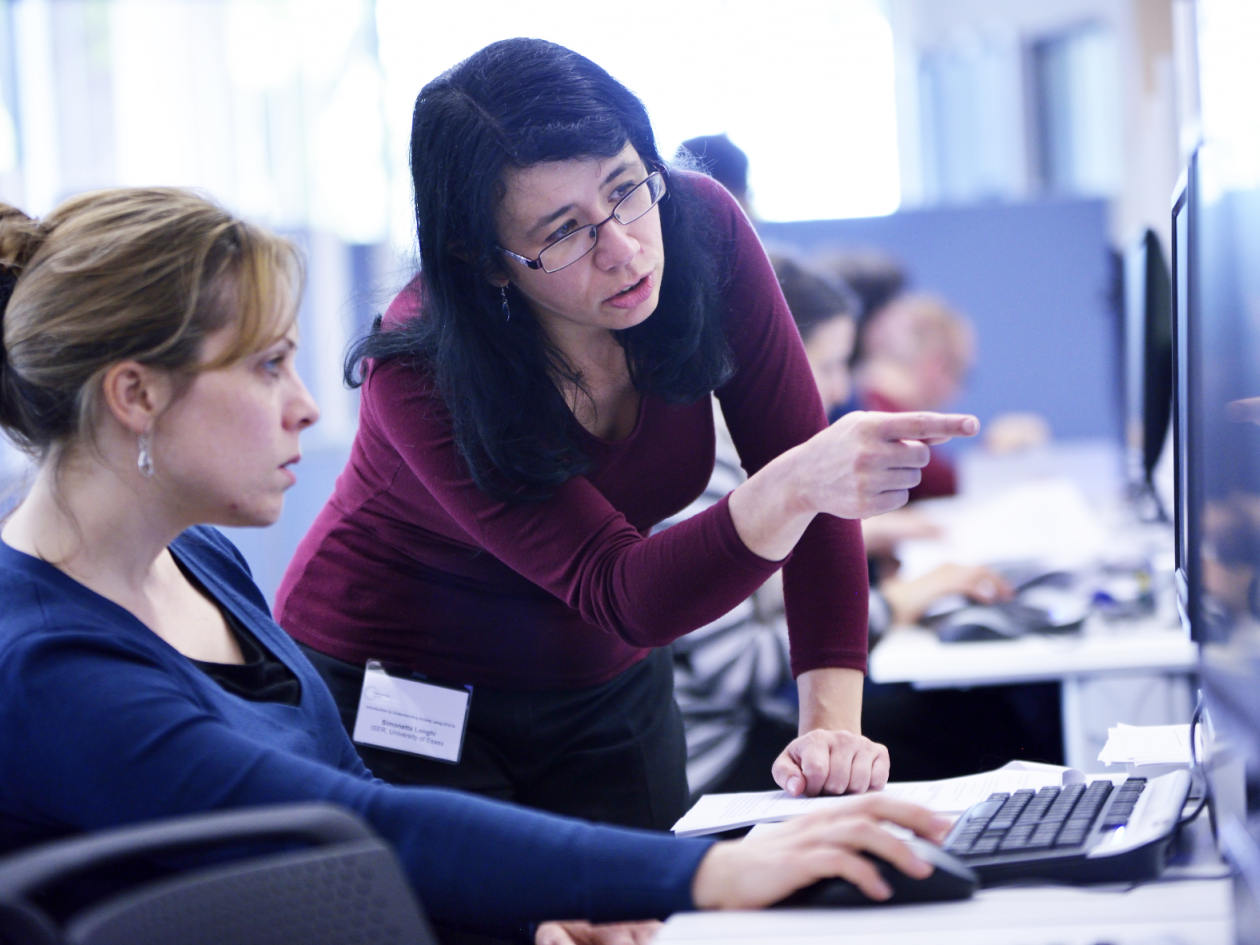In December, the government announced £95 million of funding for free courses in subjects such as health, construction and accountancy, as part of the plan to “build back better” after the pandemic. Our research at the Social Market Foundation shows that this is a step in the right direction – that people who retrain can, for example, see their incomes boosted – but that long-term planning and funding of around £1.3 billion a year are needed to restore funding lost in the last decade.
The case for adult education
There is a wealth of research showing that adult learning helps to break intergenerational cycles of poverty, and can improve household finances and overall health. However, this impact varies, and evidence on the income benefits of adult learning later on in life is limited. We used Understanding Society data to explore the links between training/education participation, income and the labour market.
Specifically, we compared the job market outcomes in Wave 9 (2017-18) of those that did and did not participate in some form of training or adult education in Wave 4 (2012-13). The five-year gap allowed for the fact that education may take time to produce returns. People need to find new jobs, apply for promotions and complete their studies (university degrees, for example can take a number of years).
Adult education and income
If we look at training overall, there’s little difference between those who did and didn’t do training in 2012-13 – but when we look at types of training, there are significant differences. A college or university course, for example, is better than training provided by one’s employer.
People who had employer-provided training saw slower income growth than those who didn’t – although of those in paid employment in 2012-13, the training group does register slightly stronger median personal income growth (12.8% versus 12.0%).
By contrast, people who did a college or university degree, diploma or course saw faster median income growth (25% versus 15%). This was not simply because those who were studying had a lower income than those who weren’t. If we look just at people who were working in 2012-13, if they gained one of these qualifications, they saw 61% median personal income growth by 2017-18, compared to 38% for those who did not.
If we look at income quartiles:
- training provided by employers is associated with stronger income growth for those in the top half of the income distribution, and with lower income growth in the bottom half
- those in the bottom half of the income distribution see stronger income growth after college, university and other training – considerably greater than among those in the top half of the personal income distribution.
This suggests that improving access to formal adult education to those on lower incomes could be particularly beneficial.
When we looked at adult education and gender, men saw more income growth after both employer-provided training and college/university learning, while women who had training in 2012-13 saw slower income growth than those who did not train. This could be due to women dropping out of the labour force or working reduced hours due to caring for children or others, but may also reflect the types of training undertaken. Women are still under-represented in courses such as economics and STEM subjects, which typically lead to higher incomes. The 2018 Apprenticeship Pay Survey shows that female-dominated hairdressing programmes had the lowest mean weekly wage of £163, while electro-technical apprentices, most of whom are men, were paid £337 – the second highest total weekly earnings.
Finding and changing work
Among adults in work in 2012-13, those who had some training were marginally more likely to have changed occupations by 2017-18. However, this is only true for those taking college/university courses or other types of training. There was little difference in likelihood of changing occupation for those who had employer-provided training. People who had done college/university courses and other types of training were also more likely to have switched industry.
We also looked at people who were unemployed in 2012-13. Of those who did some form of training in 2012-13, 16% were unemployed in 2017-18, compared with 27% among those who did no training.
A fall in funding
The economic fallout from the coronavirus pandemic is likely to see a significant increase in unemployment in the UK, and adult education could play a big role in helping people gain new skills and qualifications to help tackle this.
However, between 2004 and 2020, the number of people taking part in adult education almost halved, from 29% to 15%, and one of the most likely causes is a sharp fall in funding. The Institute for Fiscal Studies found that total spending on adult education (excluding apprenticeships) has fallen by nearly half (48%) or around £1.3bn between 2009-10 and 2019-20.
Formal training in the workplace has also declined, and those who take part in adult education tend to be more socially advantaged, better educated to begin with and closer to the labour market. This suggests that those who may benefit most from education and training – the low-skilled, low-income, unemployed and vulnerable – receive less of it.
Government commitments to adult education are welcome, but much more needs to be done. We would like to see an increase in funding of at least £1.3bn a year to offset the decline of recent years. We also think funding should be simplified, providing each individual over a certain age with a government grant to spend on accredited education or training. There should also be a major outreach campaign to persuade people of the benefits of lifelong learning.
Adult education has long played a significant role in improving the job prospects – and therefore the wider lives – of low-income households, and the economic effects of the pandemic make this effect more important than ever.
Authors

Aveek Bhattacharya
Aveek Bhattacharya is Chief Economist at the Social Market Foundation

Scott Corfe
Scott Corfe is Research Director at the Social Market Foundation

Amy Norman
Amy Norman is a researcher at the Social Market Foundation




